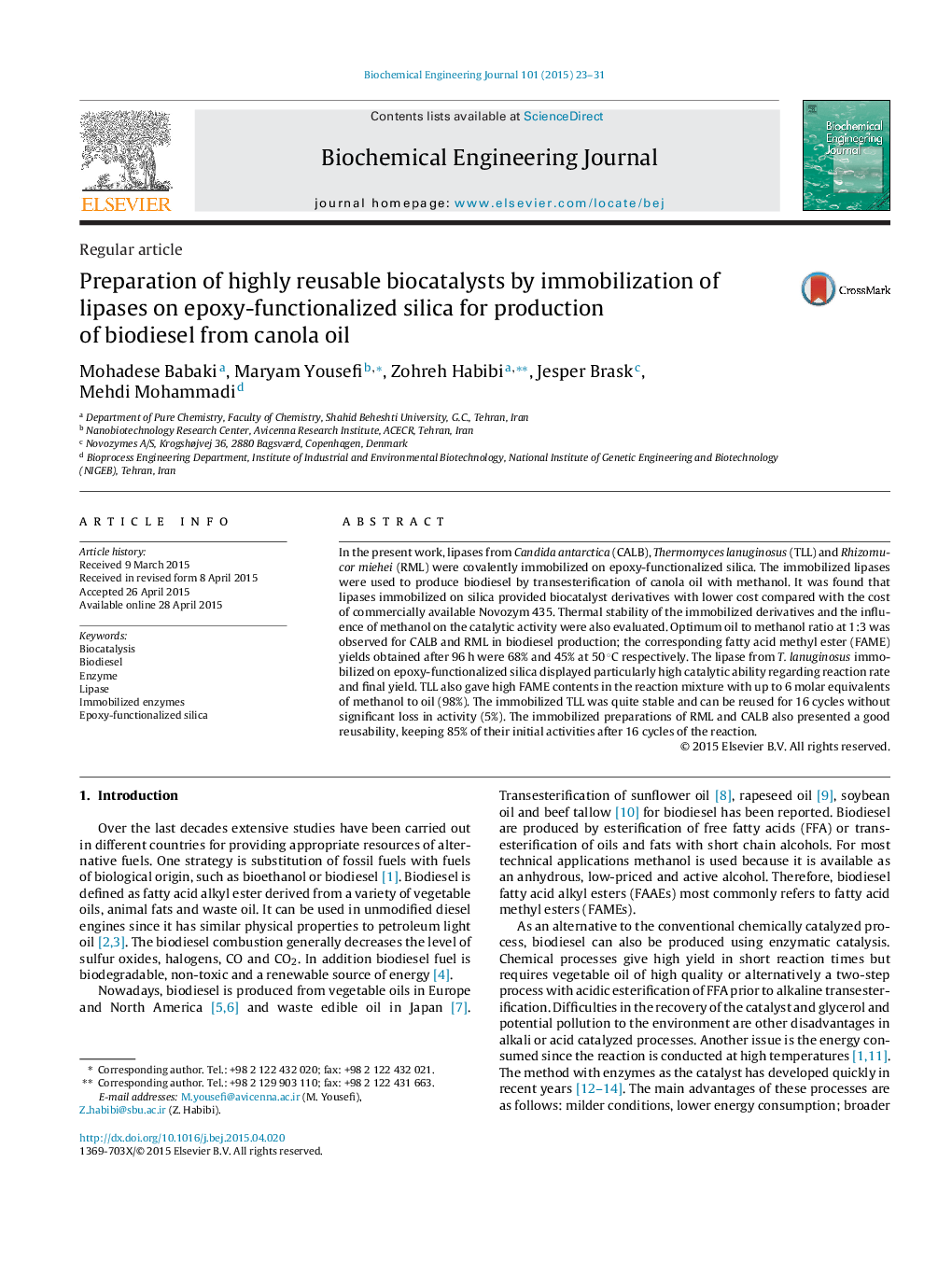| Article ID | Journal | Published Year | Pages | File Type |
|---|---|---|---|---|
| 2838 | Biochemical Engineering Journal | 2015 | 9 Pages |
•Lipases were immobilized by covalent binding onto epoxy-functionalized silica.•Immobilization resulted in improvements of thermal stability and methanol tolerance.•The immobilized lipases were studied for production of biodiesel from canola oil.•The lipase from Thermomyces lanuginosus gave high FAME yield (98%).•The derivatives can be reused for 16 cycles without significant loss in activity.
In the present work, lipases from Candida antarctica (CALB), Thermomyces lanuginosus (TLL) and Rhizomucor miehei (RML) were covalently immobilized on epoxy-functionalized silica. The immobilized lipases were used to produce biodiesel by transesterification of canola oil with methanol. It was found that lipases immobilized on silica provided biocatalyst derivatives with lower cost compared with the cost of commercially available Novozym 435. Thermal stability of the immobilized derivatives and the influence of methanol on the catalytic activity were also evaluated. Optimum oil to methanol ratio at 1:3 was observed for CALB and RML in biodiesel production; the corresponding fatty acid methyl ester (FAME) yields obtained after 96 h were 68% and 45% at 50 °C respectively. The lipase from T. lanuginosus immobilized on epoxy-functionalized silica displayed particularly high catalytic ability regarding reaction rate and final yield. TLL also gave high FAME contents in the reaction mixture with up to 6 molar equivalents of methanol to oil (98%). The immobilized TLL was quite stable and can be reused for 16 cycles without significant loss in activity (5%). The immobilized preparations of RML and CALB also presented a good reusability, keeping 85% of their initial activities after 16 cycles of the reaction.
Graphical abstractFigure optionsDownload full-size imageDownload as PowerPoint slide
